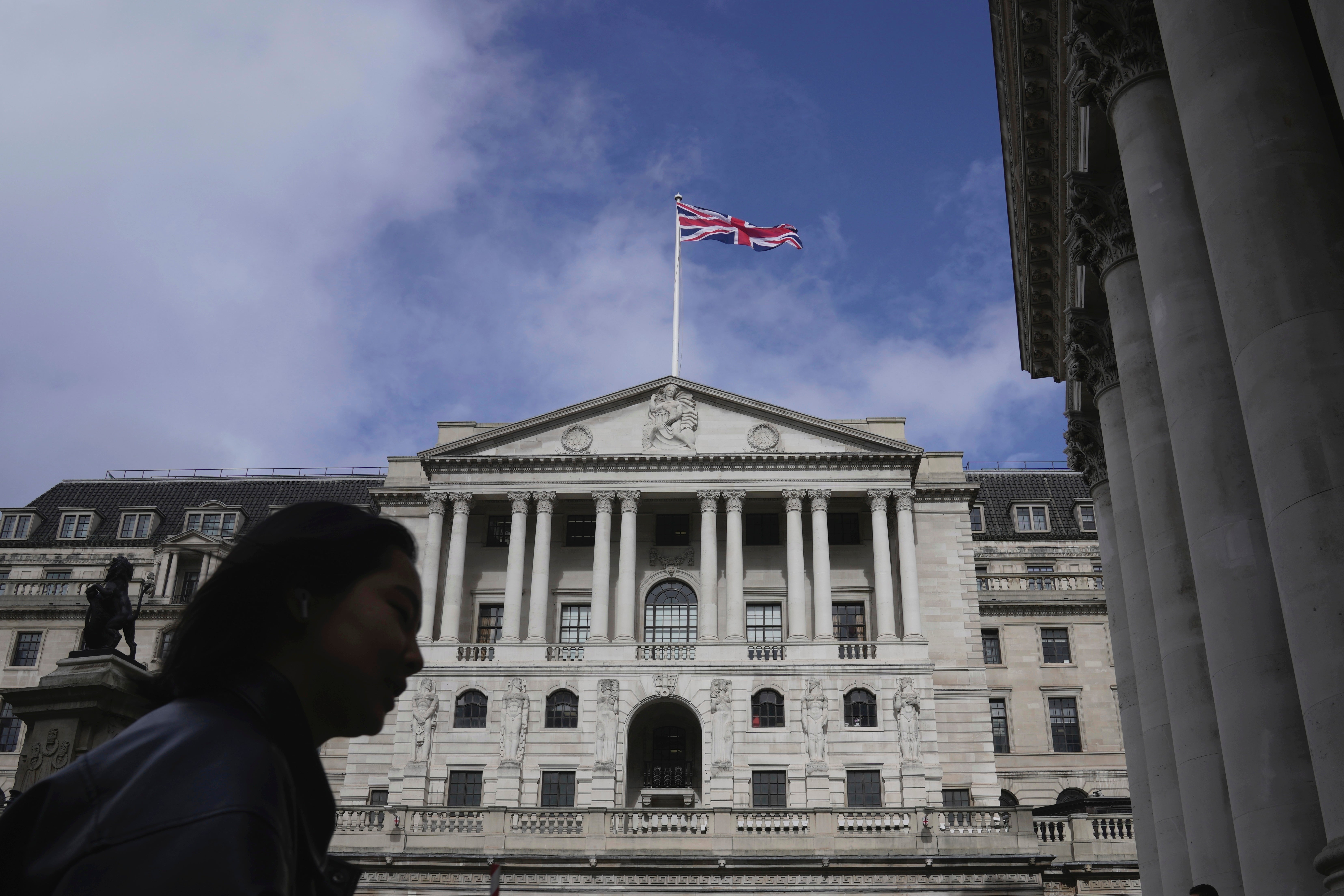Bank of England mulling first interest rate cut since early days of COVID-19 over 4 years ago
Borrowing costs in the U.K. could be cut later for the first time since the onset of the coronavirus pandemic more than four years ago, though economists stressed that the decision is likely to be a close call

Borrowing costs in the U.K. could be cut Thursday for the first time since the onset of the coronavirus pandemic more than four years ago, though economists stressed that the decision is likely to be a close call.
Economists are divided as to whether the Bank of England, which is independent of government, will cut its main interest rate by a quarter-point from the current 16-year high of 5.25%, or hold off until September.
Though inflation has reached the bank's target of 2%, several members of the nine-member policymaking panel have voiced ongoing concerns about persistent price pressures in the services sector, which accounts for around 80% of the British economy.
Interest rates in the U.K. have been unchanged for a year after a dramatic series of hikes but it's been clear for a few months that the Monetary Policy Committee is moving towards a cut. In the last two meetings, two of the nine members have backed a reduction.
James Smith, developed market economist for ING, said it will be a “close call” but on balance expects enough members will back a quarter-point rate cut following recent data.
“The bottom line is that there is just about enough in the recent data to give the Bank confidence to begin lowering rates,” he said.
Central banks around the world dramatically increased borrowing costs from the lows seen during the coronavirus pandemic when prices started to shoot up, first as a result of supply chain issues built up during the pandemic and then because of Russia's full-scale invasion of Ukraine which pushed up energy costs.
Higher interest rates — which cool the economy by making it more expensive to borrow — have helped ease inflation, but they’ve also weighed on the British economy, which has barely grown since the pandemic rebound.
Critics of the Bank of England say it is being overly cautious about inflation and that keeping interest rates too high for too long will unnecessarily weigh on the economy. It is a charge that’s also been leveled against the U.S. Federal Reserve, which has also kept rates unchanged in recent months, but like the Bank of England is mulling over when to start cutting.
Some central banks, including the European Central Bank, have started reducing rates but are doing so cautiously.